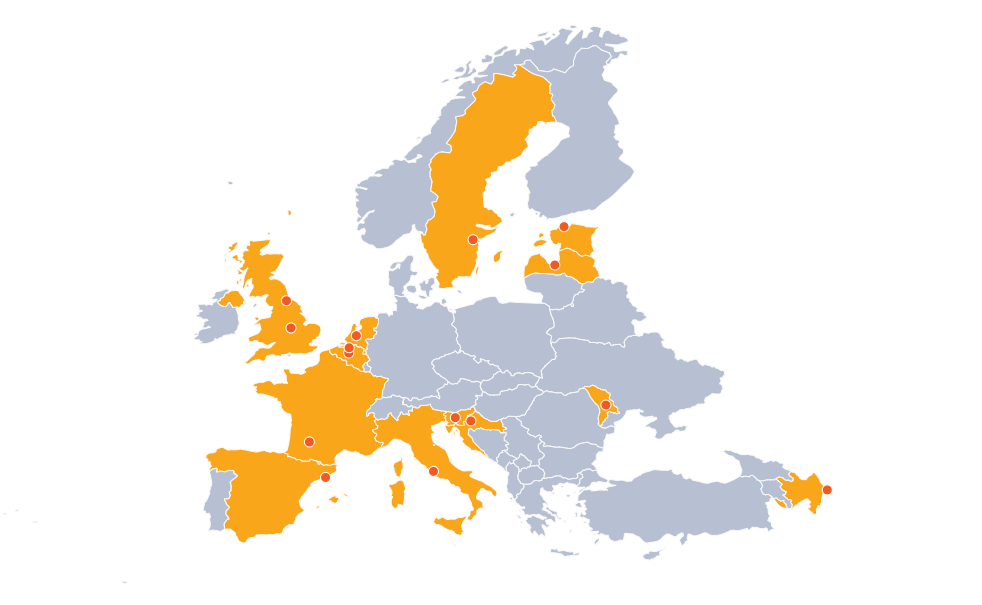Previous Article
News
Thinking about the futures of electronic monitoring
New developments in electronic monitoring (EM) have long been a significant aspect of the conversations we have about “future-proofing” the probation service – and we will be kept busy! The attached paper discusses two, ostensibly quite dissimilar, proposals for the future of EM. One comes from the EM industry, and is with us now: it is ostensibly supportive of rehabilitation and reintegration, but has hidden implications. The other is undeniably scholarly but quite implausible in the terms proposed, yet deeply unsettling in the unexpected encouragement it gives to extreme, high-tech punitiveness. Both relate to the USA, a proportionately low user of EM for offenders compared to Europe, but still an important pacesetter of technological innovation (real and imagined), and while no longer the sole global reference point on “ways ahead” in EM its example still has the capacity to influence other countries.
An introduction to the report “Better than Human”? Smartphones, Artificial Intelligence and Ultra-Punitive Electronic Monitoring‘ by Prof. Mike Nellis
The first proposal is already a patchy reality – the use of smartphones and apps as a form of “electronic monitoring plus” for lower risk offenders. Smartphones can track locations, facilitate voice communication and text messaging, and enable video-verification of one’s surroundings, companions and use of alcohol monitoring equipment. Apps could serve a variety of educational, rehabilitative and therapeutic functions that could once have been undertaken face-to-face, as online educational, employment and mental health apps already do. This overlaps with contemporary probation officers own patchy appropriation of smartphones and apps for communication and education as a supplement to face-to-face supervision. Therein lies the appeal of smartphone EM to some of its champions in the EM industry: it only goes a little way further than what probation officers are already willing to do, and, deployed properly, it could enable fewer probation staff to manage even larger caseloads. Will governments refuse this? Lower risk offenders are a largely untapped market from the standpoint of the industry, and smartphone EM stands a chance of permeating that market in ways that RF and GPS EM have not done, both for reasons of cost and liberal concern about netwidening. Given the ease with which the intensity of monitoring can be calibrated and varied to suit the entire range of risk and need profiles, and given the ubiquity of digitally mediated social relationships in everyday life, the EM industry does not see netwidening as an insurmountable issue.
The second proposal, by three liberal legal academics in Australia, for a form of ultra-punitive EM that would, over a fifteen year period, end the hideous, expensive, mass incarceration of 2 million people as we know it in the US – and substitute humane, cheaper “technological incarceration” instead, will fortunately never be implemented in the transformative way they envisage. Mass incarceration developed in the US less because there was no suitable alternative to custody available and more to contain the problems created by endemic racism, extreme inequality and the political destruction of a social safety net. Quite why liberal legal academics think that combining 24/7 GPS tracking and tight inclusion zones with biometric sensor harnesses monitoring posture and behaviour (sleeping, fighting, talking etc), and dealing with non-compliance by remote (possibly automated) electro-shock punishments is a politically feasible, let alone an ethically defensible solution to mass incarceration is a mystery. Probation figures nowhere in it. The proposal may seem like a caricature of all the dystopian technosolutions imagined in American science fiction, but its provenance among influential academics bestows intellectual legitimacy on the principle of ultra-punitive EM regardless of its politically feasibility. That anyone, anywhere might want EM that even resembles this, even on a smaller scale, would still be a problem.
Please click on the link to read “Better than Human”? Smartphones, Artificial Intelligence and Ultra-Punitive Electronic Monitoring
Did you read the article and would you like to comment on it? Please send an email to Prof. Mike Nellis: mike.nellis@strath.ac.uk.

Related News
Keep up to date with the latest developments, stories, and updates on probation from across Europe and beyond. Find relevant news and insights shaping the field today.
New

Alternatives to pre-trial detention, Community Sanctions and Measures, Framework Decisions, Technology
Future of Criminal Justice: CEP’s Contribution to Key 2025 Dialogues
27/01/2026
Throughout 2025, CEP and its representatives actively participated in the online Technical meetings ahead of the HLF as well as the High Level Forum on Future of Criminal Justice taking place on 4-5 March 2025, 20-21 May 2025 and 1-2 October 2025 in Brussels, Belgium.
Recap

Alternatives to pre-trial detention
Recap: Webinar on Alternatives to Detention 2026
26/01/2026
On Thursday 22 January, CEP hosted the first webinar of 2025 on the topic of Alternatives to Detention. The session led by Ms. Marina Pajoni from the French Prison and Probation Service titled „Problem Solving Justice in Pracitce: The Meuse Probation Service´s Approach to Drug Addiction“ introduced an innovative programme developed by the Meuse Probation Service in close cooperation with the French Ministry of Justice.
New

Education and Training
CEP launches an interactive European map of probation education and training institution contacts
22/01/2026
The CEP is pleased to inform its members that a new dedicated section has been developed on the CEP website featuring an interactive map of Europe.
New

CEP Events
CEP activity calendar 2026
20/01/2026
As we begin the new year, we would like to thank all CEP members, partners, and participants for your continued engagement and valuable contributions. Your involvement plays an essential role in shaping CEP’s work and activities.
We are pleased to share the CEP calendar for 2026, which provides an overview of the events planned for the year ahead. We look forward to continuing our collaboration and welcoming you to upcoming CEP activities throughout the year.
Thank you for being part of the CEP community.
New

CEP members, Gender-based violence
Interventions Alliance’s Eden House Recognized as Outstanding
15/01/2026
CEP is delighted to share that Eden House, an Interventions Alliance residential service for women with high-risk or complex needs on probation, has been rated “Outstanding” overall by HM Inspectorate of Probation. In 2022, Eden House was honored with the CEP Public Protection Award. Our sincere congratulations to the team for this remarkable achievement.
New

Education and Training
The Judicial Training Dashboard
14/01/2026
The European Training Platform (ETP) is a search tool for justice professionals. You can find self-learning materials on a great variety of EU law practice areas and related topics, as well as links to training providers’ homepages and course catalogues.
Subscribe to our bi-monthly email newsletter!
"*" indicates required fields
- Keep up to date with important probation developments and insights.

